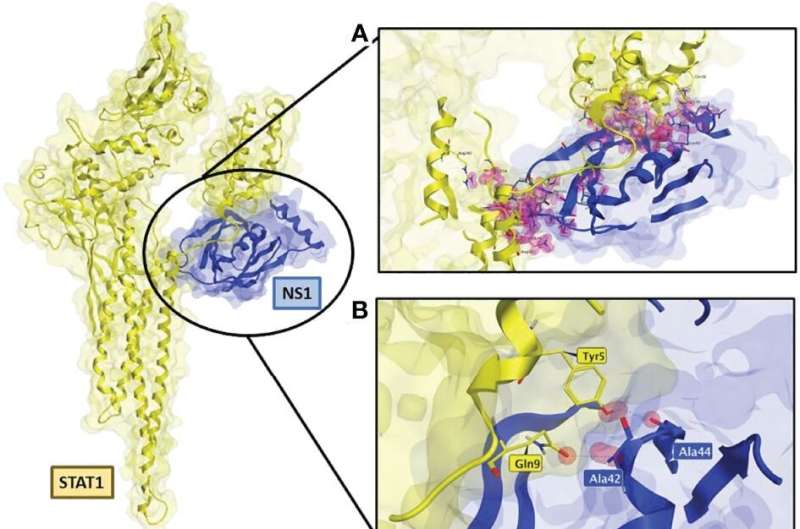This article has been reviewed according to Science X's editorial process and policies. Editors have highlighted the following attributes while ensuring the content's credibility:
fact-checked
peer-reviewed publication
trusted source
proofread
Scientists pinpoint new drug target for RSV

Scientists have discovered how the dangerous respiratory syncytial virus (RSV) defuses our immune response and, in doing so, have pinpointed an exciting new target for drug developers.
RSV causes a significant disease burden in the global population, with an estimated 33.1 million cases each year, and is the leading cause of infant bronchiolitis and viral pneumonia.
It is also particularly problematic for children and elderly people, with treatment options limited and relatively ineffective. Some RSV vaccines have recently been approved in Europe, but are not currently available through the HSE in Ireland.
Working with human airway epithelial cells, the team of scientists has discovered that RSV suppresses a key biological pathway in our cells (called "the JAK/STAT pathway") and prevents key "immune system igniters" from moving into the nuclei of cells. These igniters are ordinarily activated by interferon-alpha, our own natural antiviral.
Nigel Stevenson, assistant professor of virology immunology in Trinity's School of Biochemistry and Immunology, is the senior author of the research article that has just been published in Frontiers in Immunology.
Stevenson, who is based in the Trinity Biomedical Sciences Institute (TBSI), said, "Interferon-alpha, which activates signals in our cells through the JAK/STAT pathway, is responsible for kick-starting hundreds of antiviral genes into action, which then target the virus in a number of different ways.
"So when RSV prevents interferon from communicating to these genes the virus slams the brakes on our immune response, which can result in the virus taking hold and quite quickly causing very serious medical issues.
"Our discovery is an exciting revelation because it identifies the JAK/STAT pathway as a prime target for therapeutic immune restoration. And this new knowledge is very valuable to drug designers, as they need to fully understand how a virus evades our immune system before they can successfully create a therapeutic to turn the tide.
"We predict such a therapeutic could make a significant impact in treating RSV and even clear an RSV infection, which would represent a much-needed solution for both children and the elderly, who are very vulnerable to this dangerous virus."
More information: Claudia Efstathiou et al, Respiratory syncytial virus NS1 inhibits anti-viral Interferon-α-induced JAK/STAT signaling, by limiting the nuclear translocation of STAT1, Frontiers in Immunology (2024). DOI: 10.3389/fimmu.2024.1395809


















